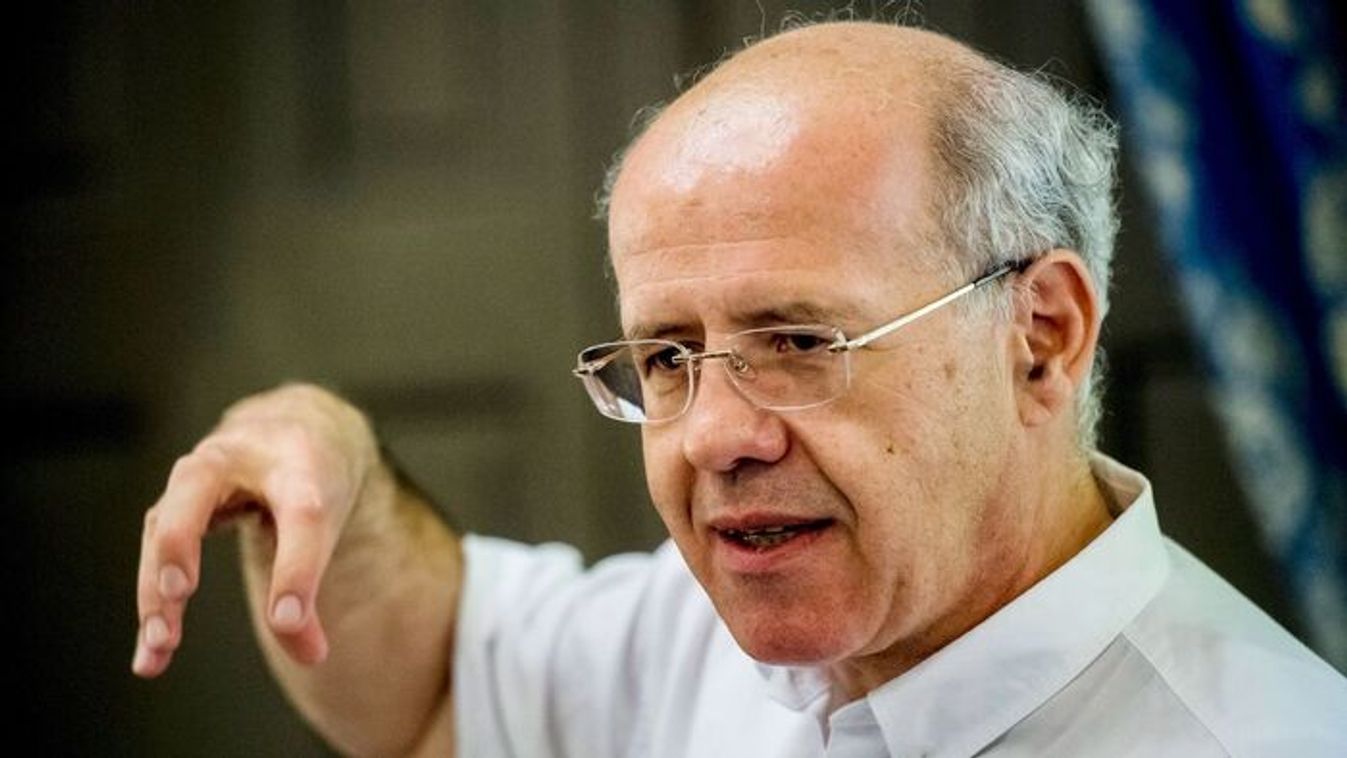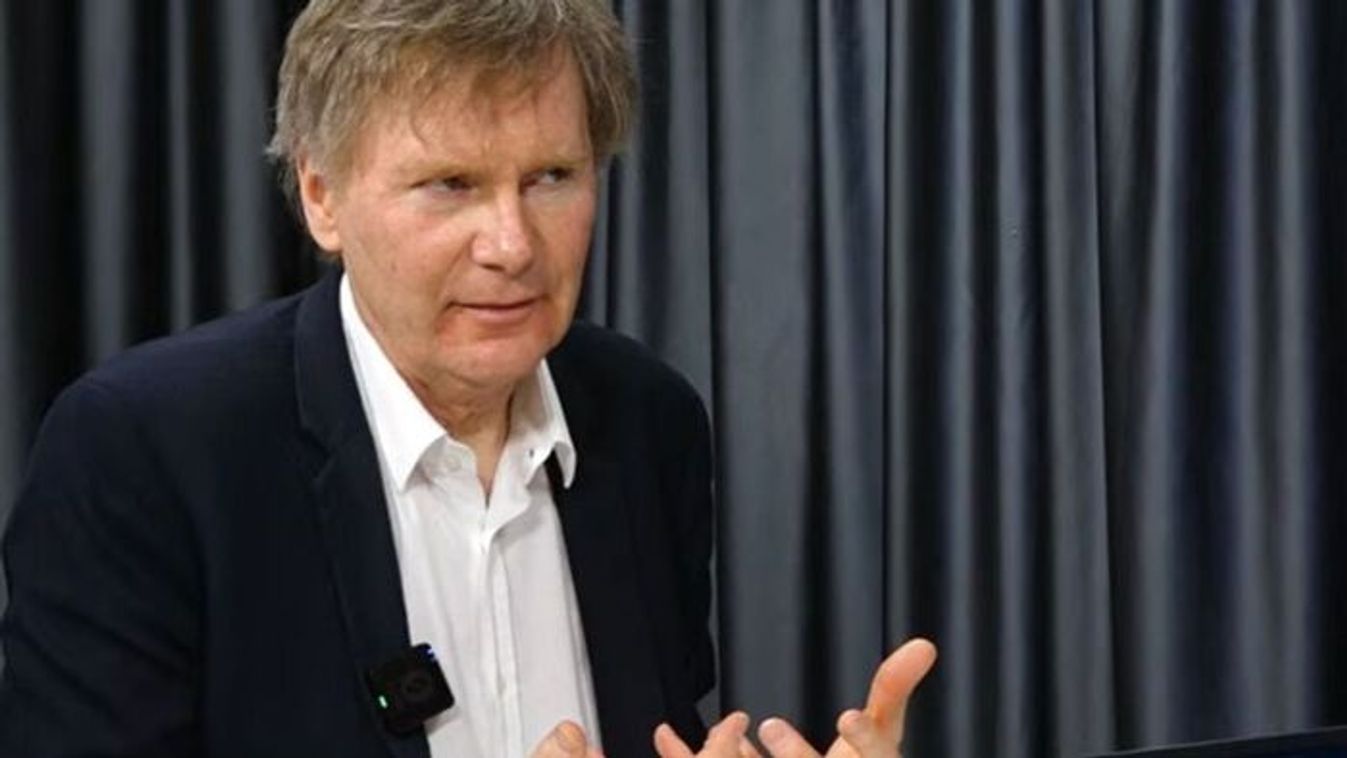Testimony of the Hon. József Szájer
Member of the European Parliament (HU-EPP)
before the Commission on Security and Cooperation in Europe
Hearing on ‘Trajectory of Democracy: Why Hungary Matters’
Washington D.C., March 19, 2013
Chairman Cardin, Co-Chairman Smith and distinguished members of the U.S. Helsinki Commission, Distinguished Members, Ladies and Gentlemen:
It is an honor for me to appear here to share my views on the state of Hungarian democracy. I am a founding member of the now governing party, Fidesz, which was the first opposition organization during our transition to democracy 25 years ago. I am also Member of the European Parliament elected directly by the citizens of Hungary. In my capacity as member of the Hungarian Parliament, I have participated in the preparation of almost every major constitutional change over the last twenty years. Recently, I had the great honor of being the Chairman of the Drafting Committee on the Fundamental Law of Hungary, the new Constitution of my country, which is a subject matter of this hearing.
I want to underline that Hungary has been a constitutional democracy, respecting the rule of law and the rights of the citizen ever since the transition to democracy more than twenty years ago. Anyone who might claim otherwise should be encouraged to come to Hungary and make a first-hand experience, to study our difficult past and recent history, to ask the Hungarians themselves. This is an invitation I warmly extend to the U.S. Helsinki Commission.
Hungary is a nation with one of the longest, one thousand year old constitutional tradition, which my country is very proud of. One of the finest pieces of our historic constitution, the Bulla Aurea (our Magna Charta) dates back to 1222. Hungary boasts the first ever constitutional document on religious tolerance, the Torda Declaration from the sixteenth century. Our new constitution follows the steps of these historic achievements. It aims also to restore one thousand years of historic constitutional continuity which was lost in 1944 as a consequence of the Nazi, and the subsequent Soviet occupation of my country.
As a legislator myself, I would like to express my appreciation for your interest in the sovereign act of the Hungarian nation's historic constitution making enterprise. I admire your great Constitution and we held it as a compass in creating our new one. Elected representatives of our great, freedom loving nations like the American and the Hungarian should always find appropriate occasions to exchange, on equal grounds, views and experiences on matters of great importance. And what could be more important than a nation's constitution? And what could be a more significant part of a nation's sovereignty than creating her own constitution? You in America gained your independence more than two hundred years ago. Thousands of Hungarians died for Hungary's independence, but finally we won it only a little more than twenty years ago when the Soviet occupation ended. I was there, I was part of that generation, which achieved it, and now our task is to consolidate it! Hence, you should be aware of the high sensitivity of our nation towards questions of independence and non-interference. We Hungarians consider that our nation's own constitution is an exercise in democracy that we should conduct. We listen to advice given in good faith, we learn from the experience of others. This is the very reason I am here now, but we insist on our right to decide. This is democracy and self-determination that we had been fighting for so long.
My core message is that on your behalf there is no reason to worry about the commitment of Hungary to democracy and the rule of law. My main argument is that the new amendment does not carry any significant element which has not been tested before by the competent European institutions and modified if necessary.
In the 2010 elections, FIDESZ won a victory of rare magnitude, obtaining a constitutional majority, more than two-thirds of the seats in the National Assembly. The choice of the Hungarian people was a response to a deep economic, social and political crisis. The mismanagement of public finances, public deficit and debt slipping out of control and the frequent parading of paramilitary organizations were among its symptoms. We also witnessed serious violations of basic human rights by the authorities: the most serious ones concerning the freedom of assembly in the autumn of 2006. At those difficult times we were expecting the support of the democratic community of the world to speak out against state oppression of the citizens' freedoms. Unfortunately, the international community turned a blind eye. Public order was seriously challenged by shocking events like the serial killings of our Roma compatriots with clear racist motivations and with the public authorities standing by crippled.
In 2010 we received the mandate and the corresponding responsibility to put an end to all that: start a comprehensive reform, including the adoption of a new constitution. In other words: correct the trajectory of our democracy.
A new constitution was long overdue. All Central and Eastern European countries had adopted their new, democratic constitutions long before, while Hungary had to live with an updated, explicitly transitory version of its 1949, Stalinist Constitution: in spite of several attempts, previous governments and parliaments lacked either the necessary majority or the political will to replace it altogether.
The Constitution of Hungary, as a member of the European Union and of the wider Euro-Atlantic community, respects and promotes the values of democracy and the rule of law. Large parts of the ensuing legislation have been subject to political debate and to legal review by the competent European institutions. For instance, it has been subject to controversy right from the start for its pro-life and pro-family stance. The new Fundamental Law was scrutinized by the Venice Commission of the Council of Europe, which welcomed the “efforts made to establish a constitutional order in line with the common European democratic values and standards and to regulate fundamental rights and freedoms in compliance with the international instruments...” and noted that “the current parliamentary system and the country’s form of government ... have been maintained.” While the European Commission launched four infringement procedures on some cardinal laws following the adoption of the Fundamental Law, it never challenged the Fundamental Law itself. (Under Article 4 of the Treaty on European Union the Union ‘shall respect’ the constitutional sovereignty of the member states.) The Hungarian Government was cooperating and complying throughout the process: it changed the Media Law and the Law on the Judiciary at the request of the Commission.
A few words on the new amendment. Around 95 percent of the provisions of the so-called Fourth Amendment, adopted last week, had been in effect ever since the entry into force of the new Constitution. We did not intend to change our Fundamental Law so soon after its adoption. What happened is that the Constitutional Court, in its recent decision, annulled some of the Transitory Provisions of the Fundamental Law on technical grounds. In fact, under the legislation, the Transitory Provisions, subject to a two-thirds majority and as such put on equal footing with the Fundamental Law, carried some constitutional provisions the Court now ruled should be moved to the Fundamental Law itself. In other words, the position of the Court, based on the German constitutional doctrine of 'obligation to incorporation' is that the Constitution should be one single act: therefore, what had to be done was basically a copy-paste exercise of a purely technical nature. Hence the length of the new amendment! But not much new text. The Fourth Amendment was based on the request of the Court, and not against it, as some critics misleadingly claim. Some words on the new elements.
All assertions to the contrary notwithstanding, the Fourth Amendment does not reduce the powers of the Constitutional Court. In fact, it does the opposite. It adds the President of the Supreme Court and the Chief Prosecutor, to those having the right to file for the constitutional review of laws. It repeals the rulings of the Court passed under the old Constitution, but clarifies at the same time that its rulings shall not lose their legal effect and – as specified by an additional amendment - the Court shall remain free to refer to its own previous case-law in its future jurisdiction. Nor can the Amendment strip the Court of a power it never had: the right to review and annul the Constitution text itself or its amendments, unless on the grounds of procedural flaws. My definition of the separation of the powers is that the Court interprets but does not change the text of the law. The power to change (or annul) the text of the Constitution should belong exclusively to the constitutional authority, which is the National Assembly in the case of Hungary. The Fourth Amendment makes a big step forward in making the procedures of the Constitutional Court transparent, by opening it to public access. It also adds - following several European examples - that the parties concerned in the proceedings should have the right to express their views in the procedure, changing the annoying and much criticized 'black box' nature of the Court.
Concerning the status of churches, I would like to reiterate that the criticized legislation has nothing to do with religious freedom or even with religion. According to Article VII (1) of the Fundamental Law, the confession and exercise of faith individually or collectively is a basic right of individuals and religious communities (without any need for registration). The only power the National Assembly has in this regard is to choose, on the basis of criteria codified by law, on which religious community to confer the additional right to subsidies from taxpayers’ money. This is common practice in Europe but our list of churches is more generous than the European average. I know that on the basis of your Constitution's First Amendment, your system is different from the European model. Our Fourth Amendment adds an important correction: the parliamentary decision (by 2/3 majority) can be appealed at the Constitutional Court on procedural grounds. This change was adopted to implement the relevant Court decision.
On the front of the media, I have no breaking news. Here we can tell a real success story, at least if measured by the sheer number of reports, articles and other expressions that are harshly critical of the government published every single day in the free press of my country. If you read them, you will not witness any sign of the infamous self-censorship either! Anybody taking the trouble to check the situation on the ground rather than judging by hearsay would agree with that. I am not aware of any case of censorship or harassment of journalists during the three years of the current government. The actual purpose of the Media Law was to adapt to the Internet age and to streamline the financing of public media by our taxpayers. Many other countries are studying this law. There are huge debates in countries like the UK about appropriate press regulation. As mentioned earlier, the Media Law has been corrected on a couple of occasions at the request of the European Commission and the Constitutional Court.
Expressions of anti-Semitism and of racism in Hungary are cause for concern. Even though the phenomenon is not new and unfortunately widespread all over Europe, each and every such incident is deplorable and calls for more determination to eliminate them. The Hungarian Government is equal to the challenge. Prime Minister Orbán has repeatedly underlined that he stands for a policy of “zero tolerance” when it comes to anti-Semitism.
Here we are confronted with two conflicting expectations: to combat hate speech and safeguard the freedom of expression at one and the same time. One has to strike a balance. In the Fourth Amendment, we chose to lay the constitutional grounds for civil procedure open for any person in case his or her religious, ethnic or national community should be seriously offended in its dignity. This might not be the only solution to the problem; there has been criticism but we cannot stand aside idly. To illustrate the paradox, let me remind you of the kuruc.info case. Kuruc.info is a Hungarian language website, registered in the U.S,, infamous for propagating racial hatred and violence, targeting the Hungarian public. The Hungarian authorities have in vain requested its closure by the U.S authorities. The answer has always been that it was not possible under the more liberal U.S. laws.
Jewish communities in Hungary, which had been waiting for stronger legal instruments against hate speech for decades, welcomed the move. Rabbi Köves, leader of the Unified Hungarian Jewish Congregation and the Action and Protection Foundation called the relevant article of the Draft 4th Amendment as an ‘historic step forward in defense of the dignity of the communities’. Our policy is consistent with our unambiguous relationship with the past. It was the first Orbán Government which founded the Holocaust Memorial Center in Budapest and included a special Holocaust Remembrance Day for the first time in the curriculum of high schools. Yet the latest shining evidence is the international Wallenberg memorial year in 2012, launched by the second Orbán cabinet to commemorate the centenary of the birth of the Swedish diplomat who rescued thousands of Jewish lives in Budapest at the end of World War II and who was posthumously given the highest recognition by your legislature, the Congressional Medal of Honor. The Wallenberg year has earned universal acclaim. It gave us an opportunity to admit Hungarian co-responsibility in the Shoah, which Mr. János Áder, President of Hungary, solemnly did in his speech before the Israeli Knesset.
The time allotted for my testimony may not be long enough to dismiss all your concerns but I am confident that they will abate once the amendments are looked at more closely - as was the case with the Media Law, the Law on the Judiciary, and I can cite many other examples.. I am here to assure you that the Hungarian Government is at your disposal for further clarifications. We are open to criticism if based on facts and arguments. Foreign Minister Martonyi has requested the Venice Commission to give its opinion on the Fourth Amendment and would propose changes if necessary. We abide by the rules of the European institutions and expect the same from all others, including our critics. I am deeply convinced that in a constructive dialogue we can enrich each other’s constitutional experience, and thus avoid unfounded accusations and disagreements arising from misunderstandings.
The friendship between our two nations, Hungary and the U.S. belonging to the same alliance and being each other’s solid partners in promoting, shoulder to shoulder, our common values in places like Afghanistan and the Balkans will help.
Let me close my remarks with the first line of our national anthem, hence the first line of our new constitution: God bless Hungarians! Isten, áldd meg a magyart.









